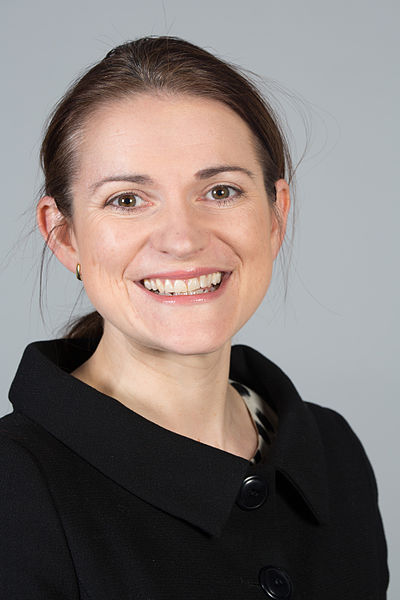 I am honored to join CC on the eve of the 20th anniversary of the organization.
I am honored to join CC on the eve of the 20th anniversary of the organization.
For nearly two decades, CC has worked to make the world more open and balanced.
When the CC started in 2001, I was only recently elected a member of the European Parliament . This was the time when issues of copyright and access to information began to gain public attention.
In my 20 years as an MP, I have directly represented over 5 million people in Scotland and have driven change for over 500 million EU residents, addressing digital policy issues such as copyright reform, citizen privacy, data protection, and also providing public access to digital tools.
Today we find ourselves in a completely different world. And when I try to envision the future, I feel like CC's work has never been so important.
We have the opportunity to play a leading role in the global struggle to remove barriers to the dissemination of knowledge and creativity.
This is especially important because of the problems that have arisen before us, because the coronavirus pandemic continues to lead to human and economic losses across the globe.
Inequality is on the rise and injustice becomes even more apparent.
The tragic assassination of George Floyd sparked the global Black Lives Matter movement, and pro-democracy protests took place in a number of countries, including recent protests in Belarus.
The SS expresses solidarity with those who are in trouble, who protest against injustice , with those who are fighting around the world for the rule of law, representation and equality.
The trials and crises we have witnessed in this extraordinary year raise legitimate questions about power and privilege.
Who has access to knowledge in our unequal society?
We understand that too often access to knowledge is in the hands of a small circle of people, not the majority, and often denied by women, people of color, LGBTQI communities and people from the Global South.
Our task is to question this state of affairs, this power and privileged position. The solution to this problem is to open access to knowledge and its dissemination.
During the coronavirus crisis, we saw a number of positive changes.
Previously paid publications were made available, and research results were disseminated worldwide. The race to develop a vaccine against COVID-19 demonstrates why fast and unrestricted access to research and educational materials is so important .
It's a shame that it took a global pandemic to do this, but I hope this lesson is now learned.
However, we have witnessed not only steps forward, but also steps back.
Some countries have imposed restrictions on the right to information , and not all have reinstated this right.
And still a lot of knowledge remains inaccessible to people: in many countries the doors of museums and libraries are still closed, and digital access is still impossible for a large number of people.
Breaking down obstacles is not easy.
An example is the National Emergency Library, created by the Internet Archives , which donated over 1.3 million e-books to users during the pandemic.
A consortium of four publishers went to court and the library was forced to close . This indicates that obstacles remain.
But there is also hope.
I have long been convinced of the need for digital access to foster a new era of development, growth and efficiency for all members of society.
I am pleased with the opportunity to bring about real change.
The work of the SS has already proven its importance during this devastating pandemic. Open COVID Pledge Initiativemade it easier for universities, companies and other intellectual property rights holders to develop drugs, test kits, vaccines and other scientific discoveries.
And we worked to ensure that government-funded educational resources are available under an open license to give the public access to reliable, practical information.
There is much more to be done.
Our world faces an uncertain future, and it is vital that organizations and governments adopt open access policies.
Technological advances have brought many people closer together, but at the same time, too many have been pushed into the background.
Our mission is to build a common future for everyone, and I can't wait to get started.
Catherine Stihler,
Executive Director of Creative Commons Corporation. This text is distributed under the terms of the Creative Commons Attribution 4.0 International license . You can copy, edit and use for commercial purposes this text with the required attribution. Photo by DAVID ILIFF. License: CC BY-SA 3.0 https://commons.wikimedia.org/wiki/File:Catherine_Stihler_MEP,_Strasbourg_-_Diliff.jpg?uselang=en
